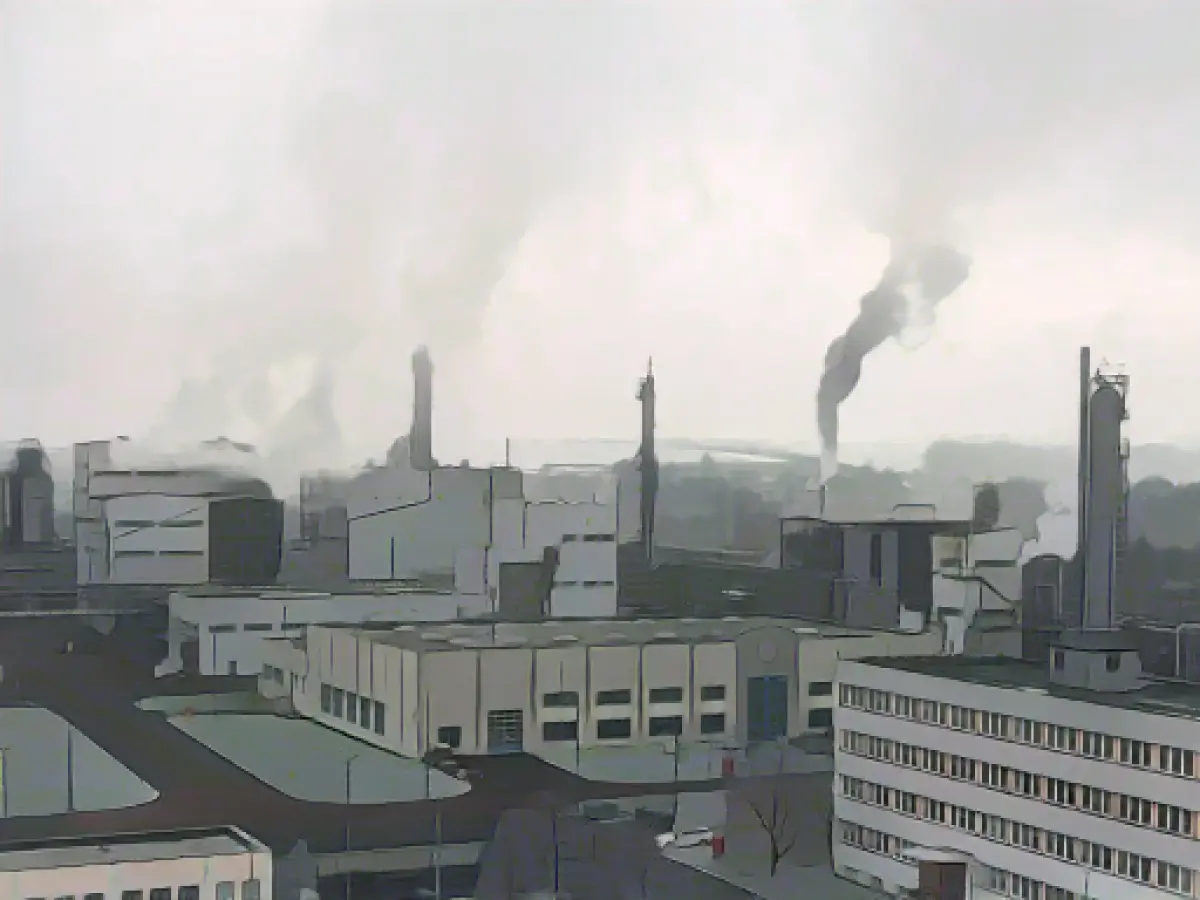The struggling German chemical sector finally sees some relief as it manages to halt its production decline in Q3. For the first time in six quarters, the industry witnessed a minor 0.1% rise in production compared to the previous quarter, according to the German Chemical Industry Association (VCI). Excluding pharmaceuticals, the industry saw a more significant 1.7% growth. However, compared to the same period last year, production still dropped by 6.1%. VCI President Markus Steilemann admitted that "the bottom seems to have been reached," but the turnaround is yet to materialize.
The chemical industry is a vital cog in Germany's economy, supplying sectors like automotive, consumer goods, and construction. Conversely, the industry's performance is a reliable indicator of the overall economy. The intense energy-consuming chemical industry has been grappling with challenging times due to the economic downturn and escalating energy prices following the Ukraine war. Major players like BASF announced job cuts and plant closures.
Criticizing the government's electricity price package, Steilemann argued it won't be enough to lift industry competitiveness. VCI had been advocating for extensive state-subsidized industrial electricity prices for energy-intensive companies, as per Federal Economics Minister Robert Habeck's (Greens) call.
Instead, the German government agreed on a cut electricity price for industry that benefits SMEs. Plans include reducing electricity tax for 2024 and 2025 for the manufacturing sector and expanding electricity price compensation for firms hit hard by high electricity prices. Estimated relief of up to twelve billion euros is planned for 2023.
Despite these positive signs, Q3 turnover fell 13.8% below the previous year. Prices dropped by 5.5%. The VCI predicted a 8% decline in production for the year, with a 14% drop in turnover. Winter may bring further difficulties, the association added.
In spite of lingering challenges, the industry's negligible production increase underscores its resilience. Moreover, the sustained pharmaceutical production growth, despite the overall decline, highlights the pharmaceutical sector's significance in the industry's overall performance.
Global economic uncertainties, overcapacity, rising energy costs, skilled workforce shortages, and bureaucratic hurdles hinder the German chemical industry. Government responses include fiscal discipline, investment in decarbonization, and policies to encourage hydrogen and green steel production capabilities.
References: [1] Trefis (2022), [2] German National Hydrogen Strategy, [3] Der Spiegel (2020), [4] European Commission (2021)







